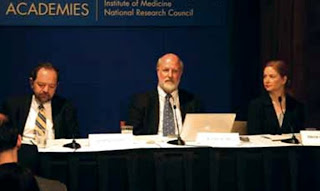The controversy over embryonic stem cell research touches on some of the same fundamental questions
that society has grappled with in the debates over contraception, abortion, and in vitro fertilization. The questions at the center of the controversy concern the nature of early human life and the legal and moral status of the human embryo. Embryonic stem cell research often involves removing the inner cell mass from “excess” blastocysts that are unneeded by cou- ples who have completed their fertility treatment. This prevents those blastocysts from continuing to develop. Although such blastocysts would likely be discarded (and thus destroyed) by the clinics in any case, some believe that this does not make it morally acceptable to use them for research or therapeutic purposes.
They believe that the life of a human being begins at the moment of conception and that society undermines a commitment to human equality and to the protection of vulnerable individuals if blastocysts are used for such purposes. Some cultures and religious traditions oppose the use of human life as a means to some other end, no matter how noble that end might be. Other traditions support embryonic stem cell research because they believe that the embryo gains the moral status of a human being only after a few weeks or months of development. Many traditions emphasize obligations to heal the sick and ease suffering—goals for which embryonic stem cell research holds great potential—and favor embryonic stem cell research for this reason.
Several religious groups are currently involved in internal discussions about the status of the human embryo and have not yet established official opinions on the matter. Public opinion polls suggest that the majority of both religious and non-religious
Is an Embryo a Person?
Labels:
ETHICS MORAL VALUES AND US LAW

0 comments:
Post a Comment